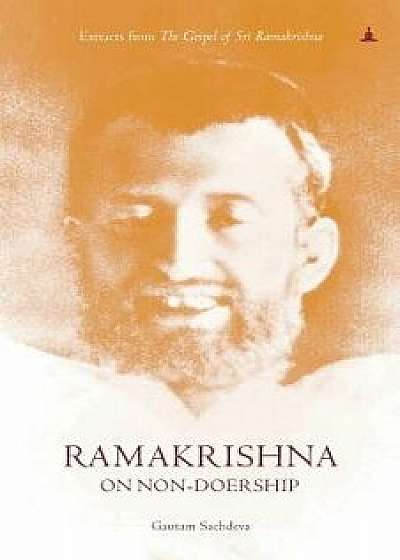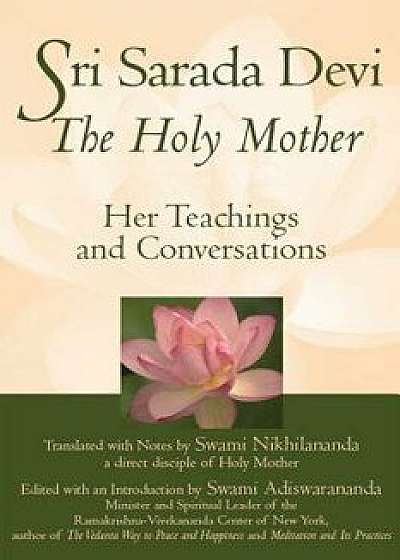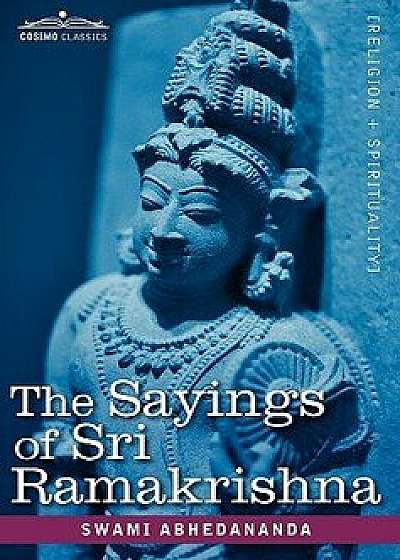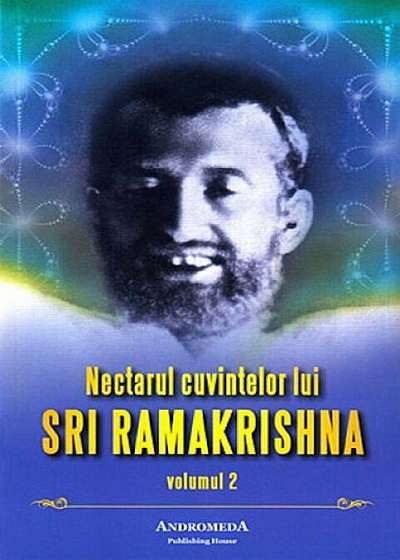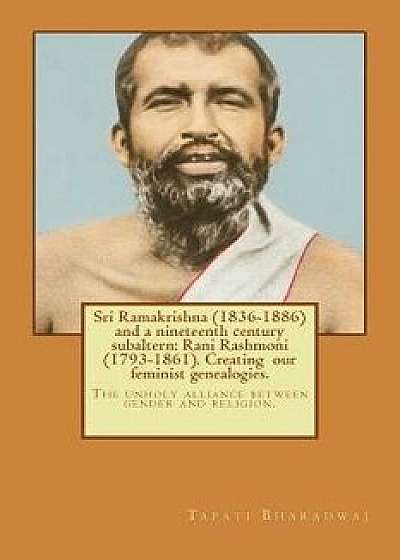
Sri Ramakrishna (1836-1886) and a Nineteenth Century Subaltern: Rani Rashmoni (1793-1861). Creating Our Feminist Genealogies.: The Unholy Alliance Bet, Paperback/Tapati Bharadwaj
Descriere
Description The focus in this brief essay-book is to retrieve the voice of a nineteenth century subaltern in Bengal, India, Rani Rashmoni (1793-1861) and the conditions under which she lived. By having a dialogue with a subject from the past, by recuperating a history that has been elided by feminist historians, we are compelled to conclude that Rani Rashmoni was an agent on her own rights. Oftentimes, we have to be willing to venture into documented sources out of the norm in order to create a space from where we can make ethical contact with the subaltern, even if the subaltern seems not to have any agency - complying and conforming to most norms of patriarchy, caste and class. We have to create new interpretative parameters to read within and into the stories which create these social matrices that construct the oppressed female subaltern. More importantly, where do we locate primary or even secondary material about women who lived at this time period? If we, as feminists, are willing to broaden our focus on what texts we are willing to read, then we can sketch out the lives of women who were living at this time period. It is because of Sri Ramakrishna (1836-1886), the mystic saint of Bengal, that we know so much about the life of Rani Rashmoni but why is it that we hear little about her, or there is little mention of her, outside the works published on Sri Ramakrishna by the Ramakrishna Mission? When the Britishers arrived, towards the end of the eighteenth century, were all native women victims of sati and patriarchy? It is within this premise that I try to understand the life of Rani Rashmoni, who can be considered as actively involved not only in philanthropy but also in business and management. It is at the interstices of the religious interiority of her life, and the public-ness of being a member of the rich elite that we have to deconstruct her life. Was Sri Ramakrishna more a closeted social revolutionary than anything else, and through his politics of all
